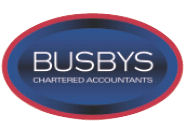 SERVICES
Holiday Letting Tax ServicesHOLIDAY LETTING - Changes to the tax rules 6 April 2010From 6 April 2010, the favourable tax treatment of holiday lettings will change, and unsurprisingly, owners will generally be worse off. At present, holiday let owners can treat their rental income as trading income, and this brings with it a number of benefits. Owners are able to claim tax relief on capital expenditure in a more beneficial way than owners of ordinary let properties, losses from holiday letting can be set off against other income in a far more flexible way than ordinary letting losses, and the sale of a property that has qualified for holiday letting treatment will benefit from more favourable capital gains tax treatment than a non-qualifying property. To benefit from the more favourable income tax and capital gains tax treatment, holiday let owners have needed to make sure that their property goes through a number of hoops, the main ones being that the property must be available for holiday lettings for at least 140 days per annum, and the property must actually be let as a holiday home for 70 days per annum. Additionally, the property must not be let to the same tenants for more than 30 days, and the property must be situated in the UK. Most holiday let owners have become familiar with these rules which have been in place for many years. So what caused the change in government thinking? Well, sadly, part of the blame needs to be laid at the door of our friends in Europe. A few years ago, the European Court ruled that our holiday letting rules discriminated against holiday home owners whose properties were elsewhere in the EU. So the UK government was forced to change the rules last year, so that EU property owners could also benefit from the favourable tax treatment available to UK holiday let owners. But given the economic climate, the Chancellor also announced at the same time that the special holiday let rules would be abolished from 6 April 2010. So how will this affect you?
So one thing is clear - whilst the favourable Income Tax treatment ends on 6 April 2010, you will have another three years in which to sell the property and take advantage of the favourable Capital Gains Tax treatment of business assets. Wherever possible you should take advice now about how the changes will affect you. Please call us on 01580 765088 , or contact us via the website. |